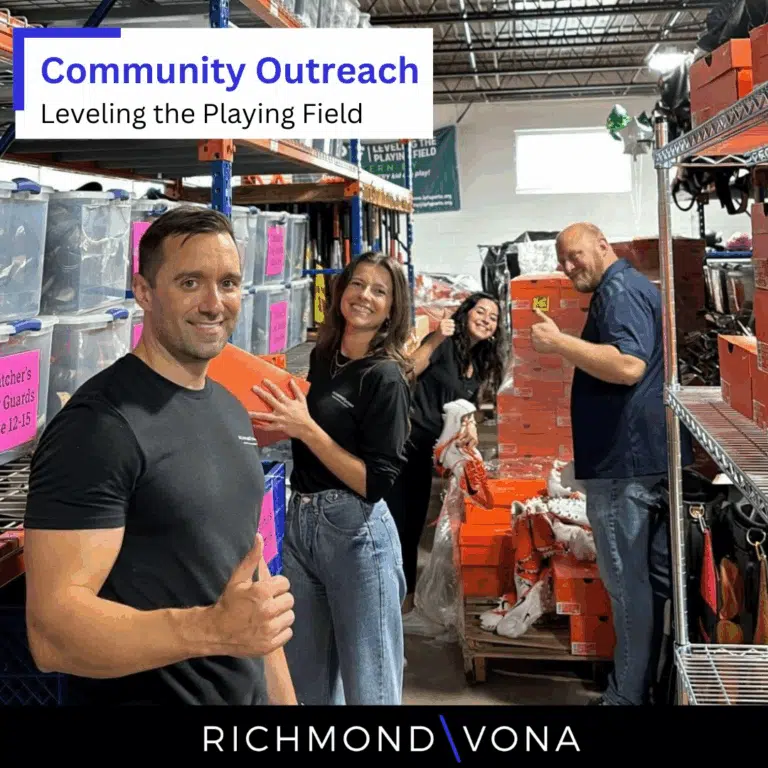Nursing homes are meant to be safe places where older people can receive care at one of the most vulnerable stages of life. Unfortunately, many families who entrust their loved ones to nursing homes discover that their elderly family members have suffered abuse or neglect at the hands of nursing home staff or fellow residents.
Nursing home abuse can take many forms, including physical, emotional, financial, and sexual abuse. Neglect is also a common problem that frequently causes rapid health deterioration. Understanding the common signs of nursing home abuse and neglect can help prevent harm to loved ones living in assisted care facilities. If you suspect your loved one may be a victim of nursing home abuse or neglect, or if you have concerns about their care in an assisted living facility, contact the NY nursing home abuse lawyers at Richmond Vona for advice and help.
Abuse vs. Neglect in Nursing Homes
While both are physically and emotionally harmful, there are differences between abuse and neglect in nursing home environments.
Nursing home abuse occurs when nursing home residents are deliberately mistreated, whether physically, emotionally, sexually, or financially, by nursing home staff, other residents, or visitors.
Nursing home neglect occurs when a nursing home’s staff disregards or overlooks a resident’s basic needs, resulting in harm. Neglect involves cases when residents do not receive adequate nutrition or hydration, proper supervision, adequate assistance with grooming and daily activities, or medical treatment that meets the applicable professional standard of care.
Common Signs of Physical Abuse
Physical abuse in nursing homes can take many forms. Common ways in which nursing home residents are physically abused include hitting, slapping, use of improper restraint, and forced ingestion of food or medication. Watching for signs of physical abuse on your loved one during visits can help prevent serious harm. The following signs often indicate physical harm:
Unexplained Bruises or Cuts
Older skin tends to bruise more easily, so it’s not uncommon for nursing home residents to sometimes develop bruises. However, unexplained bruises or cuts on a loved one may be a sign of nursing home physical abuse. If they seem to frequently show visible injuries such as bruises and cuts, particularly if the injuries seem severe, abuse is a possible explanation.
Fractures and Broken Bones
Fractures and broken bones are common injuries for older people, given that bones weaken and become more fragile. However, if your loved one breaks a bone in a long-term care facility, it’s important to understand how the injury occurred and mind possible signs of intentional harm. In addition to deliberate physical violence, broken bones also can be a sign that a loved one has been left unattended and suffered fall injuries.
Signs of Physical Restraint
Signs of physical restraint, such as bruising or cuts around the wrists, ankles, and thighs, or ligature marks and similar injuries, can indicate that your loved one was inappropriately physically restrained. If you see new bruising in areas where they may have been inappropriately restrained, ask about the circumstances in which the bruising occurred.
Evidence of Overmedication
An unfortunately common form of physical abuse is forced administration or over-administration of medication. This is especially true of sedative medications that may lower your loved one’s energy and decrease movement. If they seem unusually disoriented or are suddenly suffering from medication side effects, they may have been abusively overmedicated by caretakers.
Sudden Behavioral Changes
If your loved one demonstrates sudden behavioral changes, such as emotional withdrawal, a new sense of fear, or flinch responses, they may be responding to physical abuse in the nursing home environment. If you notice behavior differences, try to determine if anything has recently changed in their nursing home living circumstances by either gently asking them or talking to the staff.
Common Signs of Emotional Abuse
Not all abuse that occurs in nursing homes is physical. If your loved one is suddenly displaying behavioral changes, they may be experiencing emotional abuse. Nursing home emotional abuse can cause many responses in nursing home residents if they are being yelled at, belittled, mocked, or otherwise emotionally mistreated.
Common behavioral signs of emotional abuse include the following:
Changes in Mood
Mood changes are a symptom of many cognitive disorders, so it’s not completely unusual for nursing home residents to display such changes. However, if your loved one seems to be deteriorating emotionally over time, or if they seem abruptly emotionally different from one visit to the next, it’s worth talking to them further to assess whether there’s a problem.
Sudden Withdrawal
Sudden emotional withdrawal, often marked by an unwillingness to speak to visitors or a new “distant” affect, may also be a response to emotional abuse. If your loved one seems emotionally detached or disconnected, especially for more than one visit at a time, asking about the situation may be helpful.
Fear Around Specific Caregivers
If specific caregivers are responsible for emotional abuse, your loved one may respond to these individuals with fear. If you notice your loved one is scared or uncomfortable around a specific caregiver or if they complain about verbal abuse, further investigation is warranted.
Depression
Depression isn’t uncommon in nursing home environments because patients are in unfamiliar circumstances and are often struggling with health issues. However, newly developed depression in a loved one living in a nursing home may be cause for concern to investigate.
Paranoia
Paranoia is associated with some cognitive disorders, but it also can signify emotional abuse. If your loved one suddenly mistrusts caretakers or family members or feels that they’re being surveilled or persecuted, this may be a response to emotional mistreatment. Working with them to uncover the root cause can reveal emotional abuse.
How Can I Tell If My Loved One Is Suffering from Neglect?
Not all nursing home mistreatment is rooted in deliberate abuse. Many nursing home residents unfortunately suffer from various forms of neglect, in which caretakers ignore residents or knowingly fail to meet their needs while in care.
Facility staff failing to answer a call bell in a timely fashion is just one sign of nursing home neglect. Other common issues include medical, hygienic, and nutritional neglect.
Medical Neglect
Given a resident’s physical fragility due to age or disability, medical neglect in nursing homes can have particularly severe outcomes.
Medical neglect can occur either when a resident is not offered appropriate medical care for an existing condition or when proactive measures are not taken to protect their health. Untreated infections, bedsores, or ulcers from being left lying down too long, as well as failure to provide residents with correct medication on a timely schedule, are all forms of medical neglect that can cause serious health declines if unaddressed.
Hygienic Neglect
Many nursing home residents rely on caretakers to help them maintain their personal hygiene. If your loved one has a dirty appearance, soiled bed covers, unwashed hair, or dirty clothing when you visit them, they may be suffering from hygienic neglect.
Neglected hygiene needs can cause physical consequences such as hair matting and skin conditions. In extreme cases, hygienic neglect can cause serious injuries and health conditions, such as infections suffered by incontinent patients left sitting in waste by staff.
Nutritional Neglect
If your loved one has lost significant weight, appears emaciated, expresses frequent hunger or thirst, or otherwise doesn’t appear to be receiving appropriate access to food and drink, they may be suffering from nutritional neglect. Receiving insufficient food and liquids can cause malnutrition and dehydration—serious medical conditions that can cause weakness, increased fall risks, and other health issues.
Signs of Financial Abuse
Financial abuse is a common concern for families of nursing home residents, particularly those with cognitive disabilities. Sudden changes in finances, missing personal items, unusual transactions, and alterations of legal documents can all be signs that a bad actor is taking advantage of your loved one’s trust or confusion for personal financial gain.
If you believe your loved one is being financially abused, there are appropriate channels to report the abuse. Filing a report with Adult Protective Services can help. In cases where financial abuse rises to criminal levels, you also can file a report with your local police department or district attorney’s office.
Signs of Sexual Abuse
Unfortunately, nursing home residents are additionally vulnerable to sexual abuse. This is especially true of residents who are physically weakened or have cognitive impairments that may prevent them from understanding what’s happening or clearly reporting the abuse. Unexplained genital bruising or bleeding, sexually transmitted infections, torn undergarments, and changes in emotional behavior can all signify that your loved one has experienced nursing home sexual abuse.
It can be hard for nursing home residents to report sexual abuse themselves due to feelings of shame or secrecy regarding the assault. Perpetrators of nursing home sexual abuse are also not limited to facility staff. Other nursing home residents and facility visitors are also common perpetrators of sexual abuse.
Reporting Nursing Home Sexual Abuse
There are several ways to report sexual abuse of a loved one in a nursing home. If you suspect sexual abuse or find evidence of abuse, call 911 or your local police to report the crime and contact Adult Protective Services to open an abuse case.
You can also report abuse to the licensing and certification agency responsible for inspecting nursing homes and investigating complaints in your state. Contact your local long-term care ombudsman program, which helps advocate for nursing home residents and can connect you to other forms of help.
Take Action If You Suspect Nursing Home Abuse
If you suspect your loved one has suffered abuse or neglect, it’s important to take action before the statute of limitations deadline. Gather all available evidence you can. Talk with facility staff to alert them to your concerns and seek more information. If appropriate, contact the authorities to report the abuse.
You also can contact a reliable personal injury attorney in your area to assess your legal options and learn more about your rights. If you suspect your loved one may have suffered nursing home abuse or neglect in New York State, contact the legal team at Richmond Vona today for more information about nursing home abuse and potential recourse for your loved one.
Call (716) 500-5678 or contact us online today to schedule your free, confidential legal consultation.

